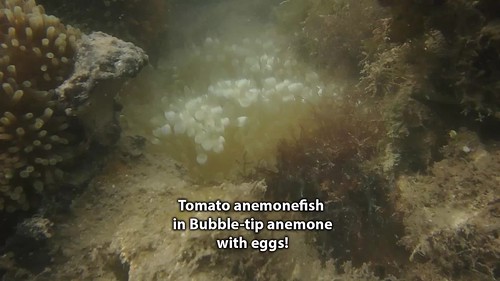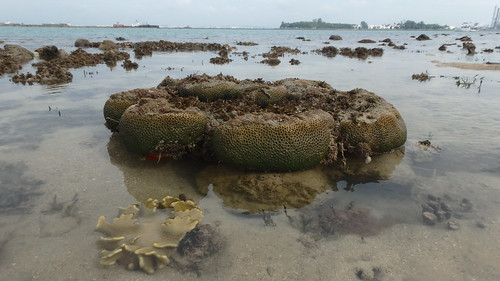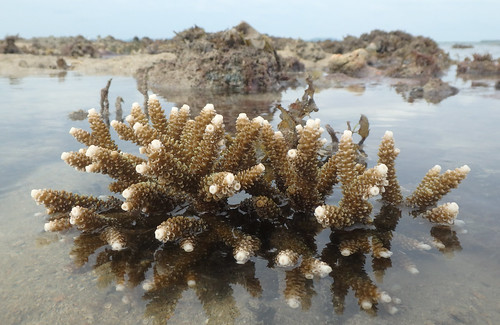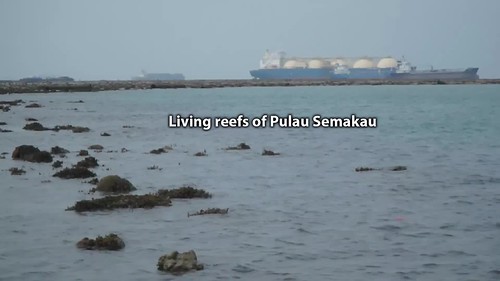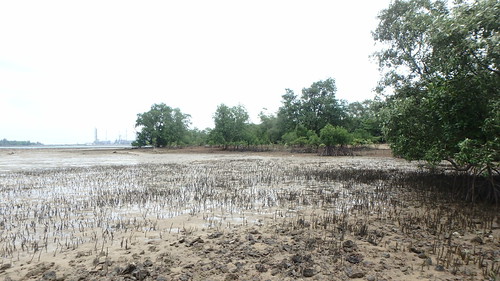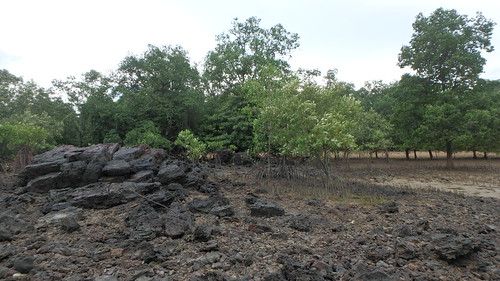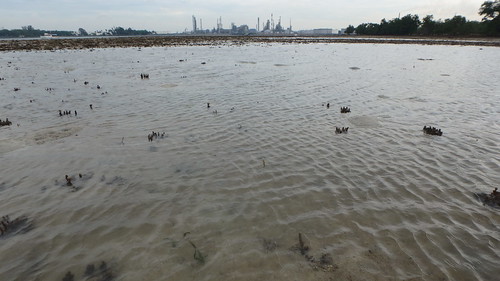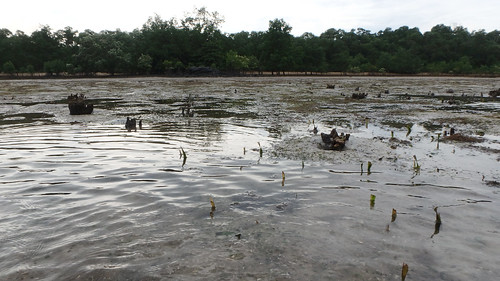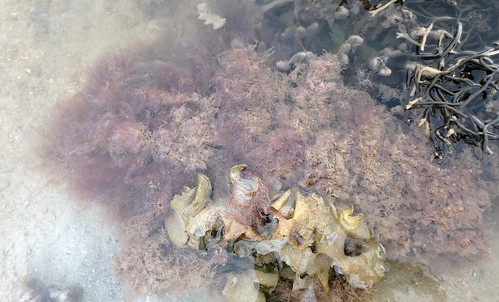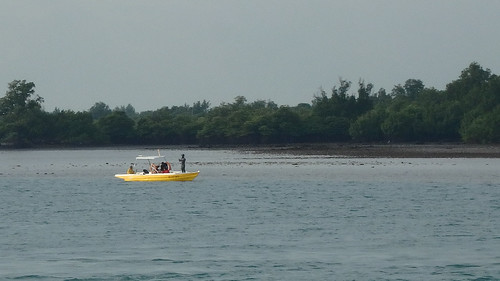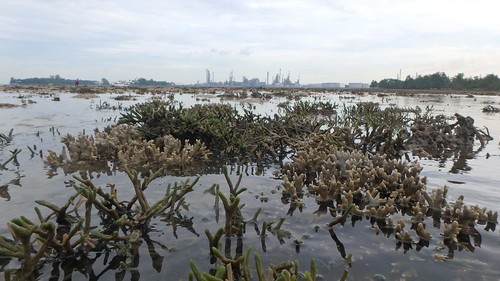 |
| Branching corals and green sponge-seaweed. |
One of the most interesting finds was to come across Tomato anemonefishes in a Bubble tip anemone (which was sadly still bleaching). Usually the largest anemonefish in the group is the female and the next largest is the functioning male (although he is often less than half her size). If the female is removed, the next largest male changes sex and becomes the dominant male. Small anemonefishes are not necessarily younger, just lower in the "pecking order". It is believed they remain small because of the constant harassment by the dominant pair.
It appears the fishes have laid bright orange eggs near the sea anemone! Chay Hoon documented one of the fishes 'grooming' the eggs, to make sure the eggs stay healthy.
Among the sea anemones we saw were Fire anemones, many Giant carpet anemones (none with anemonefishes), some Frilly sea anemones, and Bubble tip anemones. Nick also came across Haddon's carpet anemones. Aside from the one Bubble tip anemone with anemonefishes, all the other sea anemones I saw were not bleaching.
Today, I did not see any corals bleaching.
This is what the above corals looked like during mass coral bleaching in Aug 2016.
 |
| During the Aug 2016 survey. |
I came across small colonies of interesting corals such as Cauliflower coral, Pebble coral, Ridged plate coral, Brain coral and Carnation coral.
It was heartening to see small clumps of Acropora corals. Chay Hoon also saw a Sunflower mushroom coral! I saw one large Mole mushroom coral but didn't see any Circular mushroom corals.
I came across some small to medium colonies of leathery soft corals of various kinds.
Here's a glimpse of some of the corals and marine life on this shore.
The only nudibranch I saw was this Phyllidella nigra. Pei Yan saw some other nudibranchs. Chay Hoon saw several different kinds of mantis shrimps! Chay Hoon found a new Fluted giant clam but we still couldn't find the Fluted giant clams that we saw on our trip in Apr 2016.
The upper shore has a narrow line of mangrove trees.
There is a small rocky area here, which marks Site 1 of TeamSeagrass monitoring. And used to have Cryptic sea stars. I couldn't find any sea stars today.
This is what the seagrasses looked like in the past.
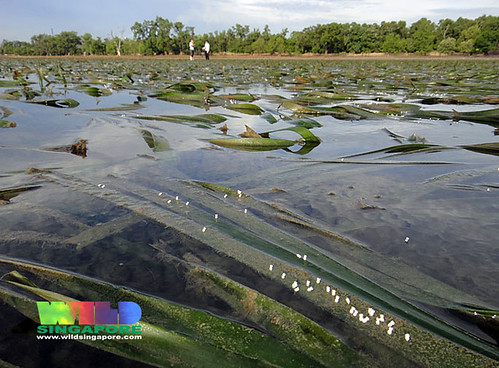 |
| Photo of this area taken in 2010. |
Pei Yan's awesome drone view also shows the area is largely bare of seagrasses.
There is a sprinkling of cropped Tape seagrass, and on the higher shore, patches of Spoon seagrass and Needle seagrass.
Here's a view with the cropped tips of Tape seagrasses stick out of the water.
There was a bloom of this unidentified reddish seaweed all along the mid-water mark. I don't remember seeing so much of this seaweed before.
We didn't come across any long fish nets on the shore, and there was only one boat of fishermen off the shore. I wonder whether this means that there are no more fishes at Pulau Semakau? A result of the massive loss of seagrasses here plus the mass coral bleaching last year?
Just as Changi Airport and Changi Prison are not the same even though they are near one another and share a name, Pulau Semakau is NOT the same as the Semakau Landfill. The Landfill was created by destroying all of Pulau Saking, and about half of the original Pulau Semakau by building a very long seawall. Fortunately, the landfill was constructed and is managed in such a way that the original mangroves, seagrass meadows and reefs on Pulau Semakau were allowed to remain. The northern shore of Pulau Semakau is near the petrochemical plants on Pulau Bukom.

As the existing half of the Landfill was used up, the Phase 2 of the Landfill was just recently launched. This involved closing the gap of the seawall on the Semakau Landfill, forming one big pool where incinerated ash will be dumped. NEA worked to limit the damage to natural shores during the construction work for this expansion of the landfill.
Posts by others on the trip
- Chay Hoon on facebook.
- Pei Yan on facebook.
- Pei Yan's drone documentation on facebook.
- Arthur Lim photos and videos on facebook.
- Sim Yi Lin on facebook.
- Abel Yeo on facebook.

